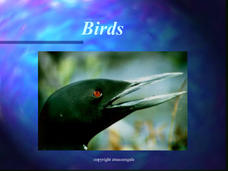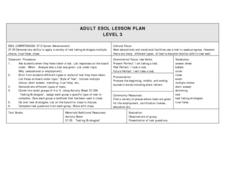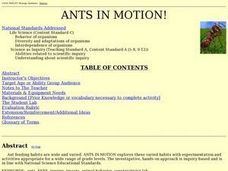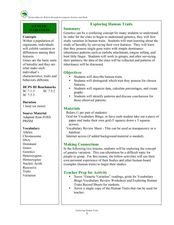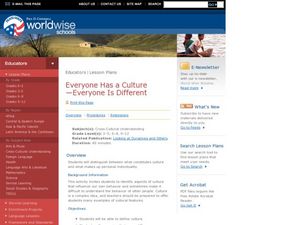Curated OER
What Do Koalas Need to Survive?
First graders take a field trip and examine the Koala and his habitat. In this Koala lesson, 1st graders read Possum Magic and discuss the foods of Australia. Students view the habitat of a Koala and record what it eats, its physical...
CTC Publishing
Interrupting
Everybody loves to contribute to the conversation, but it needs to be done politely so as not to interrupt. Help your little ones learn how to add to a conversation appropriately with a few activities that complement the book, My Mouth...
Class Dojo
ClassDojo
Imagine being able to teach a lesson and keep track of student behavior easily and effectively. This app does that through a point system that translates into easy-to-explain graphs that can be shared with parents and pupils on any...
Curriculum Corner
Planning Binder
An organized classroom is a happy classroom! Keep track of all the important data for your learners with a collection of teacher templates. It includes graphic organizers for class birthdays, transportation, contact information, behavior...
Advocates for Youth
What Reduces Sexual Risks?
Teens don't have the ability to see around all of the corners of their decisions, some of which can affect the rest of their lives. Help them understand the implications of risky sexual behavior, including sexually transmitted diseases...
Children's Commissioner for Wales
Special Mission — Our Rights
Introduce young learners to the list of children's rights as defined by the UN Convention on the Rights of the Child (UNCRC) with a series of activities that get class members thinking about what they need to grow up safely and happily.
Biology Junction
Birds
Birds adapted to almost every climate on the planet, from the Arctic to the rain forests. A presentation focused on birds covers their similarities and differences. It starts with their evolution from reptiles, their many physical...
McGill University
Peer Relationships
A nine-lesson unit introduces learners to strategies they need to develop healthy peer relationships. The scripted lessons focus on the etiquette of two-way conversations, sharing and turn-taking, good sportsmanship, and the...
Health Smart Virginia
Cyber Tattoo
Sophomores use a website evaluation tool to determine if their selected websites are valid and reliable. They read about and list three behaviors about taking and sending photos of minors that qualify as Class 1 misdemeanors in their...
Overcoming Obstacles
Understanding Conflicts
The Resolving Conflicts module begins with a instructional activity about tolerance and learning to appreciate differences among people. Through a series of activities and games, middle schoolers learn that conflicts arise when people...
Curated OER
A Memory Strategy to Improve Self-control
Students explore how to monitor their own behavior. They read a book about self-control and respecting others. Students answer questions about the book. They list strategies to assist in behavior improvement.
Curated OER
ADULT ESOL LESSON PLAN--Level 3--Career Advancement
Students seeking a promotion analyze/identify appropriate behavior, attire, attitudes and social interaction with others as well as their employers to ensure that promotion. In addition, they are introduced to the song "Nine to Five" for...
Curated OER
Culture Everywhere
Students study their culture while filling in a chart that shows how culture meets basic human needs. They examine the role of archaeologists in studying people from past cultures.
Curated OER
A Tail to Tell
Students observe populations of Lumbriculus to discover some of the adaptations that allow them to live successfully along the shores of ponds and marshes. They also design and perform experiments to test proposed hypotheses for these...
Curated OER
Ants In Motion
Students brainstorm ants and their characteristics in a class discussion. They observe the ants and answer question pertaining to their behavior; then they apply the scientific method in creating and investigating a problem.
Curated OER
Your Genes: Your Future
Students examine different healthy behaviors and choose one of their own that they would like to change or improve. In this healthy lesson students write a letter to themselves that they are going to make a change and why it is...
Curated OER
Manners
Students investigate the concept of manners and how they should be exercised at school. This lesson is a foundation of classroom management for Physical Education and is meant to be adapted to other classes if needed. Students focus upon...
Curated OER
I Feel Angry or Sad When...
Students identify inclusive procedures for activities. In this social skills lesson, students perform skits that illustrate inappropriate as well as appropriate classroom behavior.
Curated OER
Manners
Students are given opportunities to become aware of manners. They become aware of their behaviors and choices and to provide a positive place for students to think about their choices.
Curated OER
Do Caterpillars Eat More As They Get Bigger?
Learners observe caterpillar behavior and the amount of milkweed leaves the caterpillars eat each day. They collect data regarding the caterpillar's size and anything else they see. They look for patterns in caterpillar eating habits and...
Curated OER
Manners Matter
Students demonstrate proper behavior in the classroom and in other social situations. They write journal entries, create posters, invitations, and or multimedia presentations depiciting good manners. Pupils pair up with another students...
Curated OER
Exploring Human Traits
Students explore human behavior by participating in a class science game. In this human characteristics instructional activity, students identify different human traits that are passed down by each generation and the purpose each of them...
American Physiological Society
Drug the Water Flea
This is a flea. This is a flea on drugs. Any questions? Your class will have questions aplenty during an impactful experiment. Lab groups get to know Daphnia magna, the humble water flea, and study the effects of stimulants and...
Curated OER
Everyone has a Culture-Everyone is Different
Young scholars explore cultural features. In this multicultural acceptance lesson, students define and discuss "culture," and distinguish the difference between individual characteristics and cultural characteristics. Young scholars...








